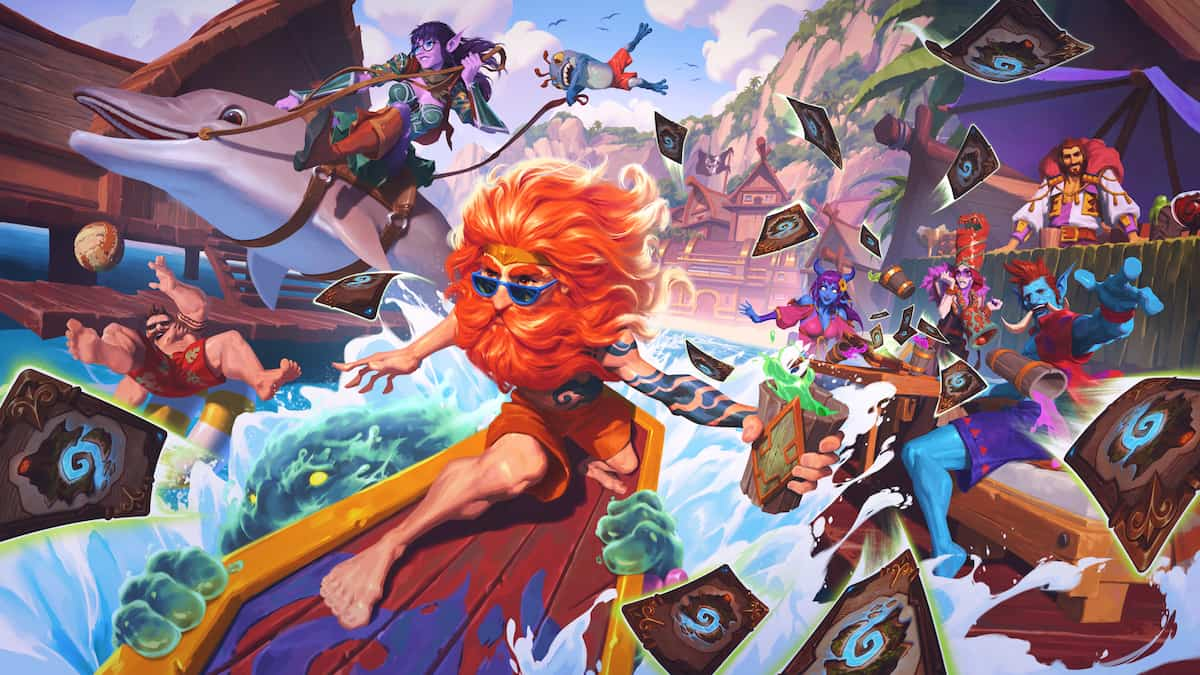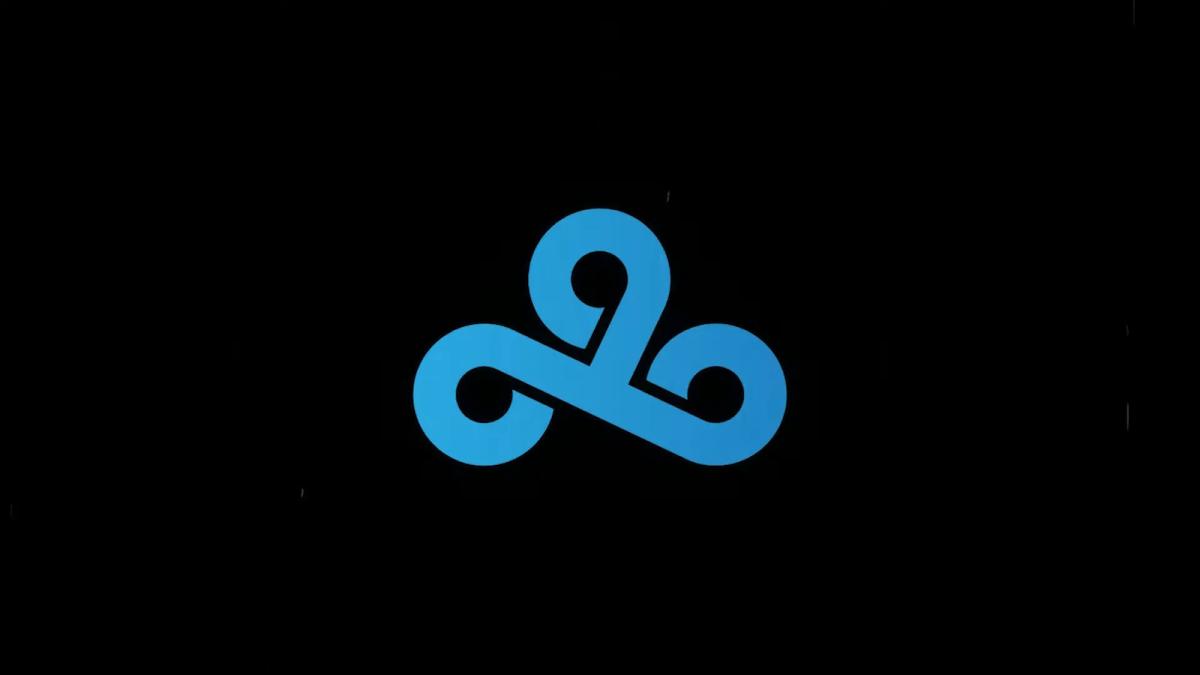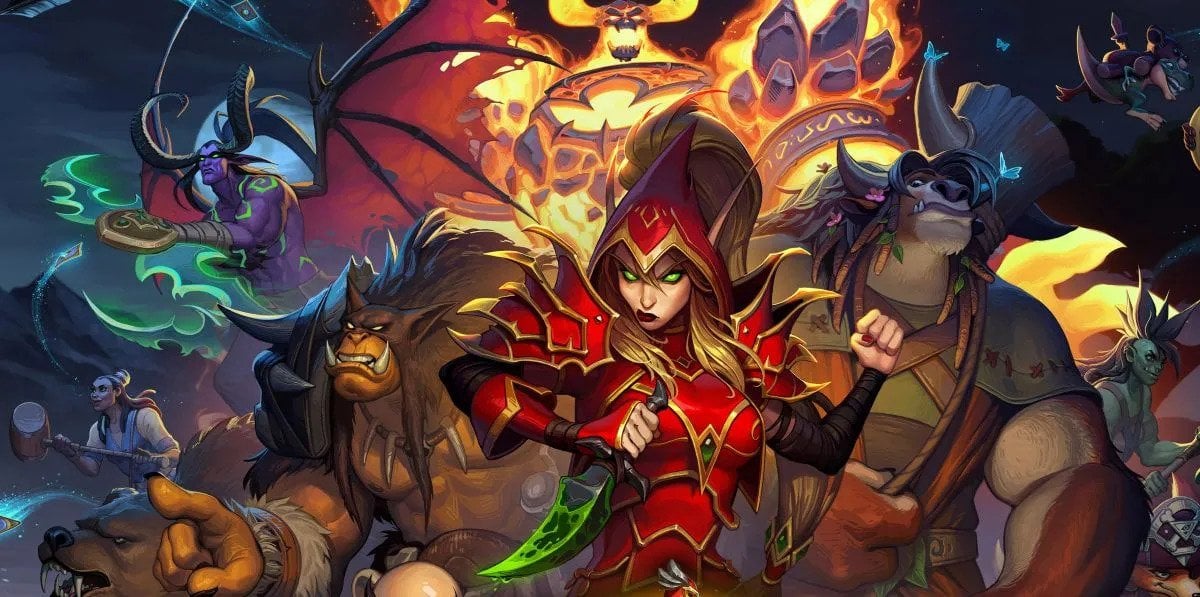Introduction
Greetings one and all! Today, I thought share with you the inner dimensions, the belts, cogs and gears of my mind that have helped me tremendously as I’ve attempted to conquer mount Hearthstone everyone season. Everyone is seeking for that next PATRON WARRIOR deck, or that next broken strategy that shakes the meta to its core. Truth is, those kinds of game changing, meta-shaking, game evolving type synergies are pretty few and far between. Most occur by happenstance, others by complete luck the latter of which end up becoming nerfed because they go so outside the realm Blizzard intended, that the scales have to be “zeroed” out again.
Point is, to anyone who takes this game seriously and strives for greatness either eventually gets a bit burnt out, takes a break altogether, or begins to look outside the box for ways to improve their skills in a way that isn’t so “hearthstone-y”.
Good news is there are actually ways to improve your skills in Hearthstone that don’t actually involve Hearthstone, but related activities instead. It’s something you should take advantage of if you’re serious about improving, and I’m going to go over some of them in this article.
There are two main reasons why this is a good way to improve your game:
- It’s an efficient way of using your time when you simply can’t play Hearthstone, want to take a break from Hearthstone, or maybe you’re feeling burnt out from Hearthstone. This might be because the servers are down or perhaps you’re on mobile and prefer playing only from your computer. Reasons, can be infinite but fact is regardless of why you’re away from the game, it doesn’t hurt to keep your skills honed. Also, sometimes even when you can, you might not want to play Hearthstone. Whatever your reason for not playing, it’s good to know that you can still improve while engaged in another activity.
- Skills from related games usually translate quite well into Hearthstone. We only need to look at some of the top Hearthstone players in the world and we’ll quickly see that a lot of them have successful backgrounds in other games. Brian Kibler, Stan Cifka, and Zalae are all very accomplished Magic: The Gathering players, the latter two being successful chess players as well. Lifecoach is a former poker professional, and Reynad is a former MTG player and Gaara has a Yu-Gi-Oh! Background.
Let’s take a closer look at some possible activities.
Chess
It’s not just for the geeks anymore. The game of chess is interesting because it’s a game most of us already know the rules for, but also find quite daunting. It really is one of those “a minute to learn… a lifetime to master” games. Whatsmore, some of the world’s most elite military minds have based their real world military strategies on this game, it’s that intense! If you really want to play the game at a reasonable level, you have to spend a lot time playing, studying, learning openings, etc. Luckily for you, that’s not what I’m suggesting at all.
A common practice method in chess is solving puzzles – or tactics, as they are called. I think this is something most Hearthstone players would find useful because it teaches you to really consider all options before deciding what to do. This is a game of patience, and technique useful and practical applications once mastered can translate seamlessly into your Hearthstone game. The way these puzzles work is that they show you a certain position in a game, and it’s up to you to find the best move, or more often, series of moves. This isn’t about what’s the best move in the here and now, it’s about what’s the best move both in the here and now, as well as 3-5 moves from now. The good thing about them is that there’s only one optimal solution, and any other moves (although potentially still good moves) are objectively worse.
So you might find yourself in a situation where you quickly see that you can win one of your opponent’s pieces for free, but if you actually look a little harder, a completely different move might have a guaranteed checkmate three moves later. This type of training fixes a flaw I believe the vast majority of Hearthstone players have: we often end up going with the first good play we find, instead of spending an extra 30-60 seconds trying to figure out if there’s anything that might possibly be even better. Good to better.

Can you find the best move? Try HERE. Hint: You’ll end up trading one piece for a better piece.
Here are a few other reasons chess tactics can help you:
- You can squeeze them in whenever you have a little gap in your day. If you’re only doing one puzzle, you can usually be done in around a minute, and do it while you’re waiting for the water to boil, microwave to finish, or train to arrive.
- You don’t need to take chess seriously to benefit from them. You don’t need to know different chess openings and you don’t need to play against other players.
- Most sites with puzzles give you a rating that changes as you solve puzzles (usually Elo or Glicko rating). Each puzzle also has it’s own rating which changes whenever a user fails or succeed with it. This means that you’re always going to get puzzles that are appropriate for your skill level and you’re going to be able to see your progress over time in detail. There are many chess sites, but I recommend the website I use regularly lichess.org, which is open source, free, and very popular.
- Chess will be around forever and long after Hearthstone is gone. Your 50+ years of practicing chess puzzles means you’ll be beating everyone else living in your retirement home.
Magic: The Gathering and Other CCGs
If you’ve read other articles of mine, then you know my background in MTG is what brought me around to Hearthstone in the first place. Unlike chess tactics, playing other CCGs is probably not something you can just fit in a minute here and there, but it can be a nice way to get some variety from Hearthstone. It offers a great way to offer some balance to your skills, some variety to your game (to keep you from becoming burnt out), while at the same time maintaining the edge of your knife. Some days you’re not going to be in the right mindset (maybe you and RNGesus aren’t getting along that day) and might want to switch it up with something else. Let’s also not forget that sometimes you actually want to interact with people in real life, and a game like MTG does that better than Hearthstone.
MTG usually requires quite a financial commitment though, so if you’re not already playing it or willing to splash money around, I would suggest looking at other online CCGs that are possible to play completely F2P. None of them are likely to ever surpass Hearthstone, so I wouldn’t invest too much time into them, but rather when you need a short break here and there. There are other CCGs available out there, do some research and maybe have a back-up game you play as a secondary. Something to break up the monotony, nothing that will break the bank, and will also maintain your skills.
The reason other CCGs improve your game is because they teach you card game fundamentals. Although every game is different, a lot of concepts such as tempo, card advantage, value, curve, resources, trading up, etc, are seen in all of them. The more experience you have with CCGs, the better you become at evaluating all these things in general. Getting overall CCG experience is something that will both benefit your gameplay and your deck building in Hearthstone.

We can actually take a look at a card that’s been recently released as an example, prince-malchezaar. A common opinion web-wide in many forums when it was announced was that it’s going to be extremely good. Some exact quotes have been “This card is insane. No question this will be in most decks,” “Very overpowered,” and “Hardly has any drawbacks… It’s going to be in every deck.“
I believe that all of these comments come from people who have a very limited experience of CCGs. I think pretty much all pros who did card reviews agreed that the card was bad, and if it ever sees any play it will possibly be in fatigue decks, but even that is quite unlikely.
And the reason for this difference of opinion is because players with experience in other CCGs know how extremely important deck consistency is. In constructed MTG, you are allowed to have more than the minimum (60) number of cards in your deck, yet every single deck you’ll see at a high level runs the exact minimum. So playing a 35-card deck would almost always be a downside, even if you were allowed to choose which five cards to add. The fact that they are random legendaries just makes it that much worse. The card hasn’t been released at the time of writing, so I might have to eat my words at a later time, but I doubt it.
Poker
I won’t recommend poker as a training method, since it’s a game that (usually) involves playing with real money and has the potential downside of gambling addiction, etc. Also, a lot of Hearthstone players are too young to play poker, as least as it pertains to gambling anyway.
I will however explain which poker skills can translate well to Hearthstone, and you might be able to take something away from it without actually having to play poker. Some of it applies to a lot of other card games involving a normal deck of cards (Hearts, for example).
One of the main benefits that former poker professionals have in Hearthstone is being able to handle the ups and downs of RNG. Most people who complain about Hearthstone, seem to complains mostly about its RNG aspect. Most people who don’t enjoy Hearthstone state, there is no real skill to winning at the game it’s all up to chance. There’s been an increasing amount of discussion lately in the community (mainly because of Yogg-Saron and Barnes) about the levels of RNG in Hearthstone. While I agree that they are too high right now, they are not even close to the RNG that exists in poker. I’ve seen people argue the opposite, which, coming from someone who played poker for nearly a decade, is just plain wrong. The short-term RNG in poker is extremely high, and anyone who’s had long-term success in poker has had to learn how to deal with frequent downswings because of randomness and bad variance.
Tilt (playing badly because of frustration) is very common in poker and it happens in Hearthstone as well. It’s human nature, to begin making bad plays when time after time things begin to go south quickly. Normally its associated with poker players playing recklessly and going all-in after a big loss, but in Hearthstone it’s usually less visible. It might be something as subtle as playing slightly faster after a few bad losses. You’re frustration makes you play too quickly, and not taking your normal time to go over other possible plays means your win rate drops. There are numerous helpful articles in this site that address this very issue and other psychological parts of the game.
Another benefit poker players have is the ability to use probability to their advantage. Every good poker player has spent a lot of time figuring out how many outs they have, the probability of certain cards showing up to save the day, and how those numbers compare to pot sizes and bet sizes. Although the mechanics of Hearthstone are completely different, probability is something that shows up all the time. I’ll give you a quick example:

Let’s imagine a scenario where you are playing a Rogue deck and the only minion on board is your opponent’s knife-juggler. Let’s also assume for simplicity’s sake that you know that your opponent can kill you next turn (perhaps you played Sap on his doomguard the turn before). Your opponent has 2 health. You have access to 9 mana crystals and the cards in your hand are leeroy-jenkins and azure-drake. You’ve played two very big gadgetzan-auctioneer turns earlier so now there’s only five cards left in your deck. Two eviscerate, an si7-agent, a shiv, and a backstab. What do you play?

This is a very easy probability problem and it’s situations like this that benefit not only poker players, but everyone who knows how to count basic probability properly during the game. Of course, you’ll run into much more complicated scenarios than this all the time, and the better you are at figuring out probabilities and the faster you can do it, the higher your win rate will be. This is also something that we will return to in a future article in this series.
The solution, by the way, is to play the Azure Drake. Four of the five remaining cards win you the game right away which gives you an 80% chance to win. If you play Leeroy Jenkins there’s a 25% chance that both knives will hit him giving you a 75% chance to win by playing him.
This last scenario also serves as a good example for my earlier argument that chess tactics benefit your game. A lot of players would immediately see the “good” play and go for Leeroy with a 75% chance of winning, but someone who slows down and considers the deck size and which cards remain in it, before deciding, would figure out that the 80% Azure Drake play is better.
This is also why, it’s a very good idea to download and use deck tracker, which will show you which cards you’ve used and which cards you still have available in your deck. Additionally, it’s calculates the percentages of what the probability is of drawing into a particular card, as well as your overall win rate of your deck.
Conclusion
Hopefully this has shown you the benefits of related activities and inspired you to take your training beyond the boundaries of Hearthstone from time to time. It never hurts to consider thinking outside the box from time to time. Maybe you have a method of keeping your skills honed that doesn’t directly involve Hearthstone that wasn’t covered here, by all means feel free to share in the comments below. As always throw your spare change into the tip jar and keep this poor student out of destitute. Until Next Time!






Published: Sep 7, 2016 08:10 am